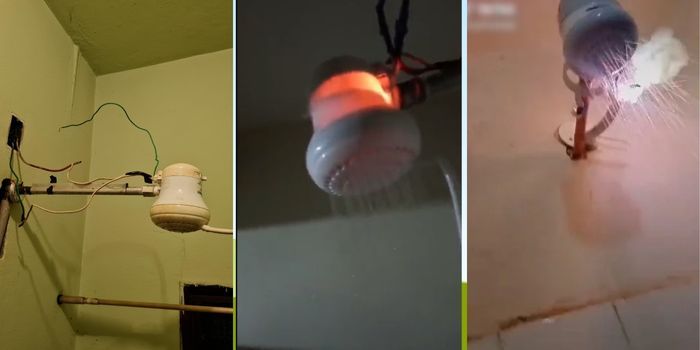In Nairobi and various regions of the country, the prevalence of hot showers remains high due to the chilly climate. The go-to method for heating bathwater in Kenya is the utilization of shower heads, also commonly referred to as quick water heaters.
While shower heads present a cost-effective means of obtaining warm water, it is crucial to consider the potential danger of electrocution. Wakenyaleo.co.ke has outlined four life-saving safety tips to mitigate the risk associated with shower heads.
Firstly, the issue of professional installation is emphasized. Many homeowners and landlords opt for self-installation to save time and money, a practice strongly discouraged due to the potential for electrical problems arising from incorrect installation. Beyond the risk of electrocution, improperly fitted shower heads can compromise the quality of the showering experience and increase energy consumption.
Another critical aspect is the selection and use of appropriate cables, even when employing the services of a professional. Some electricians may opt for lower-quality and lower-cost cables to cut expenses. To prevent overheating and potentially fatal consequences, it is advised to use high-quality 4.5mm diameter cables for shower heads. Combining earth and live wires during cable installation should be strictly avoided to minimize the risk of electrocution, as highlighted by certified electrician Jacob Nyambu. Proper earthing during installation is emphasized by Nyambu to ensure user safety, and he stresses the necessity of locating the switch outside the bathroom to prevent water-electricity contact.
Height considerations during installation are emphasized to prevent short-circuiting. Ensuring that the shower head is not positioned lower than the tallest household member’s head is crucial for safety.
Lastly, routine check-ups are deemed essential, akin to any other electrical device. Regular inspections should be conducted to verify the optimal functioning of the shower head. The temperature/pressure relief valve, designed to prevent water heater damage in case of exceeding safe limits, should be tested periodically. Immediate replacement of the valve is recommended if water does not flow freely upon opening the pressure release valve. These safety measures collectively contribute to the secure and efficient use of shower heads, mitigating the potential hazards associated with their installation and operation.



